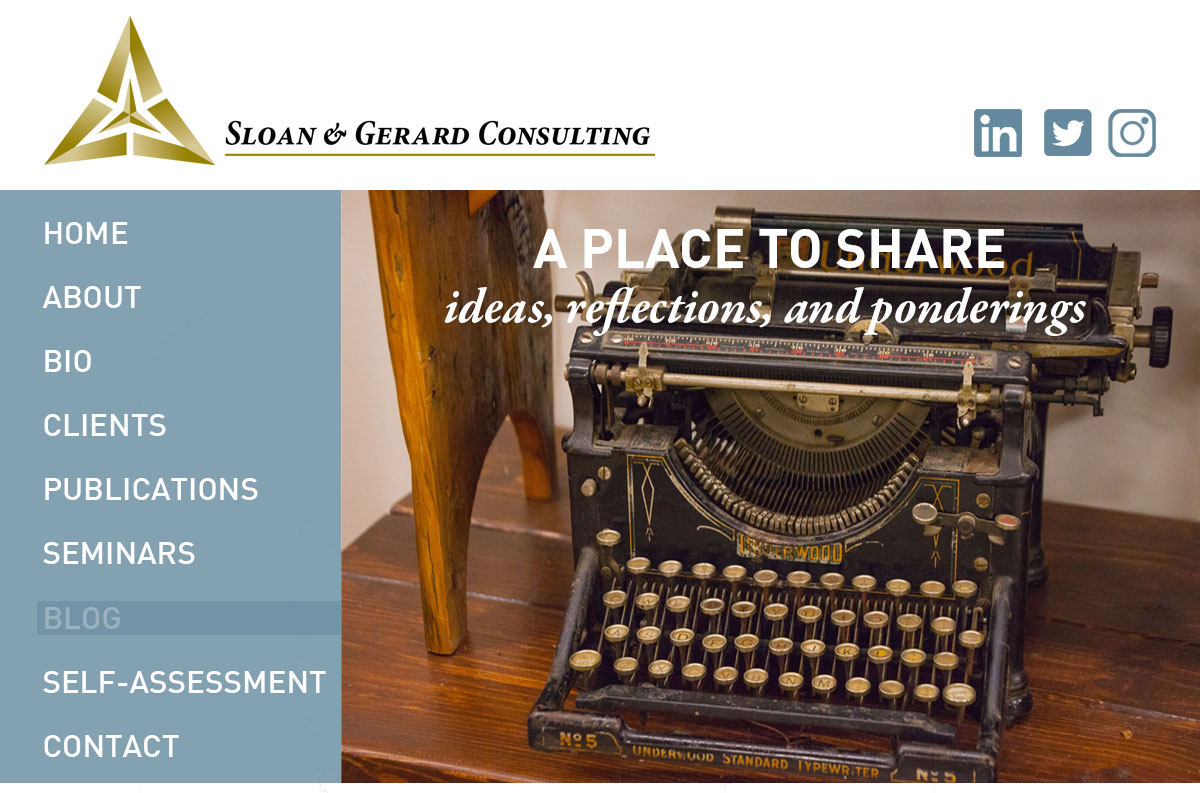Leaders are expected to create and establish a vision for the future. But once you share the vision with others, not everyone will be inspired to support your vision. The critics will emerge, some in vocal and disruptive ways, and some more nuanced. Some are rebels, who will disagree with the vision overtly, or even covertly, refusing to align their behaviors. There are also cynics and naysayers, who tend to carry a great deal of anger and disappointment, with little trust in their leaders. Today, I am focused on cynicism. It surfaces in snarky comments, ridicule, and a generally negative view of anything and everything that might change the current status, even though the current status is equally the target of similar criticism. Frankly, such criticism is easy. It does not take intelligence to criticize. What takes intelligence is to offer helpful advice, new thinking, and navigation of the interpersonal relationships to bring about meaningful change.
Change is never linear. Any change will create challenges, and challenges create energy, both positive and negative. Perhaps some resist because the leader is not listening…do you really listen without rebuttal or defense? Do you find yourself interrupting others, or hurrying them along? Is it all mind and no heart? Listening is a deep dance, felt in the heart and gut as a connection, never as a judgment. But once we have done this “self-check”, we must deal with the cynicism head on.
I am concerned that real dialogue is becoming a lost art. Our temptation is to ask why people hold the cynical views that they have. Don’t go there! If you do, you will hear a litany of blame and shame that will only create defensiveness, more blame and shame, and make things worse. Rather than sharing different perspectives, people are fast to opinionate, with little or no interest in having their own opinion influenced. Worse, those who disagree are fast to accuse, blame or suggest some form of conspiracy. This is short-sighted and immature, and certainly leads to little of value. We need to teach and practice the skills of dialogue: inquiry, advocacy, and observation. These skills are done as steps in a process, and not mixed together as it might be in normal conversations.
First, the dialogue requires a point of focus, perhaps a problem, or some opportunity in front of the participants in the dialogue. All should understand the intent of the dialogue, and why they have been asked to be part of it. Then the dialogue can begin.
Inquiry requires that we ask questions that probe what people are thinking, and why they are thinking it. It offers an approach to surface all of the important questions, before asking for answers or solutions.
Advocacy requires that we reveal our opinions about what should be done, and welcome the opinions of others, without judgment or criticism. This is never personal, never an attack, and never competitive. Rather it must be a sharing of perspectives.
Observation means just that, observing patterns and themes in the preceding conversation. Once we know the questions, and once we know the opinions of others about what to do with the questions, then we can begin observing patterns, themes and priorities, drawing conclusions together.
It is time to abandon cynicism for the poison that it is, and refuse to allow it to disrupt our business and our lives. When people begin to act cynically, it is time for a robust dialogue.
